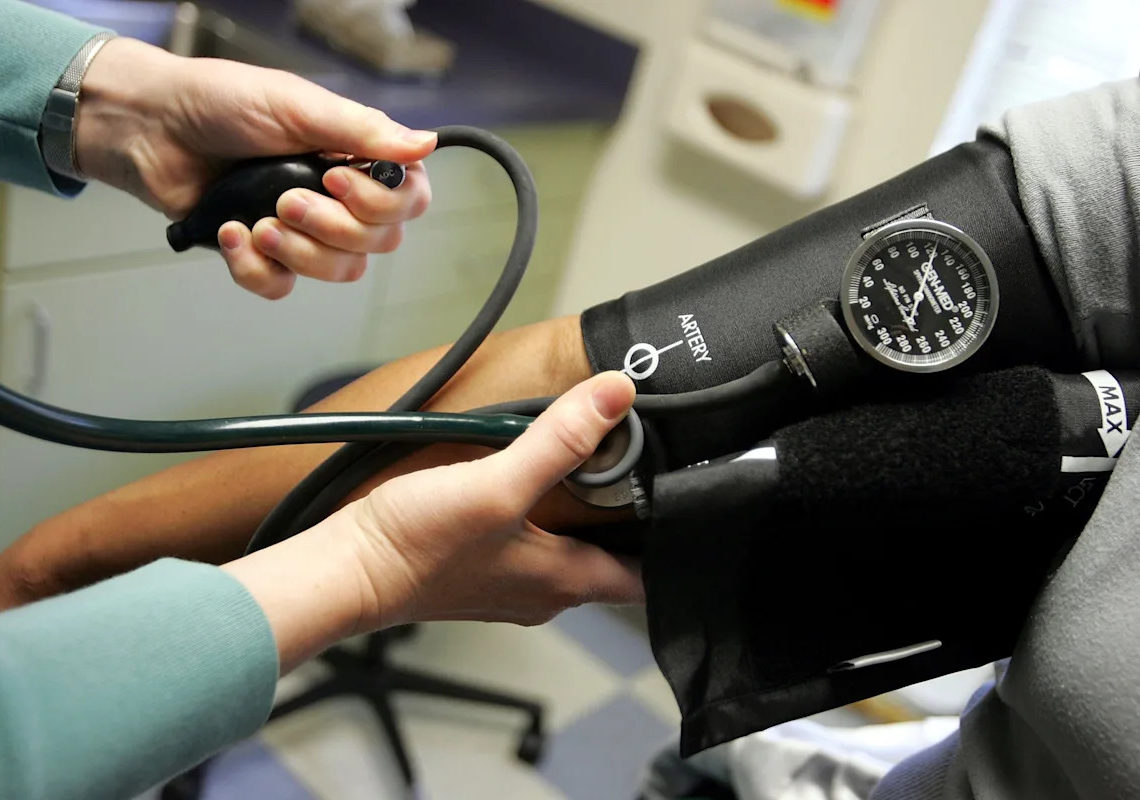The American Heart Association and the American College of Cardiology issued their first new set of guidelines to help minimize hypertension since 2017.
The new guidelines used by clinicians nationwide recommend that Americans limit the amount of alcohol they consume. While forgoing alcohol consumption altogether is preferable, the groups found that men should limit their intake to no more than two drinks per day, while women should limit their intake to no more than one per day.
Systolic and diastolic blood pressure both increase over time with alcohol intake, according to a report published Aug. 14. The data found that those who avoid drinking alcohol have the lowest risk of hypertension, and that those who reduce their intake by at least 50% experienced healthy blood pressure levels.
The updated guidelines are now instructing doctors to recommend treatment to those with stage 1 hypertension rather than just stage 2.
More: Can alcohol cause cancer? Here’s what the science says
While the 2017 guidelines would prescribe lifestyle changes and medication to those with a systolic blood pressure level of 140 mm Hg or higher, clinicians are now advised to recommend lifestyle changes to those in the 130–139 mm Hg range. The blood pressure gauge uses a unit of measurement called millimeters of mercury (mm Hg) to measure the pressure in your blood vessels.
“By addressing individual risks earlier and offering more tailored strategies across the lifespan, the 2025 guideline aims to aid clinicians in helping more people manage their blood pressure and reduce the toll of heart disease, kidney disease, Type 2 diabetes and dementia,” Chair of the guideline writing committee Dr. Daniel Jones said in a news release.
Guidelines still urge people to reduce salt intake
Experts continue to emphasize that lowering sodium intake is essential for minimizing hypertension. According to health guidelines, it’s recommended that individuals limit their sodium consumption to 2,300 mg per day, with an ideal target of 1,500 mg per day.
The report emphasizes that most adults get their sodium intake from eating packaged and restaurant foods, rather than adding salt to the food they prepare. The new guidelines encourage people to examine the sodium content in the food they eat and use potassium-enriched salt substitutes when possible.
The guidelines recommend that people adopt a heart-healthy diet, such as the DASH eating plan, which prioritizes meals high in vegetables, fruits, whole grains, legumes, nuts, seeds, and low-fat or nonfat dairy products, while also including lean meats and poultry, fish, and non-tropical oils.
Exercise is also recommended, with experts urging at least 75-150 minutes of physical activity every week, from cardio to weight training.
Is heart disease still the leading cause of death?
Yes, heart disease continues to be the leading cause of death in the United States and worldwide despite there being many ways to avoid hypertension and maintain a healthy blood pressure, according to the report.
Nearly half (46.7%) of adults in the U.S. have higher-than-normal blood pressure, referring to either stage 1 or stage 2 hypertension.
Stage 1 hypertension refers to those with a systolic blood pressure of 130 to 139 mm Hg or a diastolic blood pressure between 80 and 89 mm Hg.
Meanwhile, stage 2 hypertension refers to those with a systolic blood pressure of 140 mm Hg or higher or a diastolic blood pressure of 90 mm Hg or higher.
More: Millions of us eat soy sauce regularly. Is it bad for you?
What factors shape blood pressure?
The new guidelines list the various factors that influence one’s blood pressure, including the following:
-
Behavioral, environmental, hormonal and genetic influences.
-
Dietary factors including sodium intake (lower is recommended), potassium intake (higher is recommended), and alcohol consumption (little to none is recommended)
-
Intake of fiber, calcium, magnesium and plant protein
-
Weight and related metabolic issues
-
Age, obesity and insulin resistance
-
Sleep disturbances and psychosocial stressors
-
Physical activity and fitness
-
Environmental exposures and chemical toxins, including air pollution and heavy metals
This article originally appeared on USA TODAY: New blood pressure guidelines suggest you cut back on these two things
The post New blood pressure guidelines recommend cutting back on these two things appeared first on USA TODAY.



